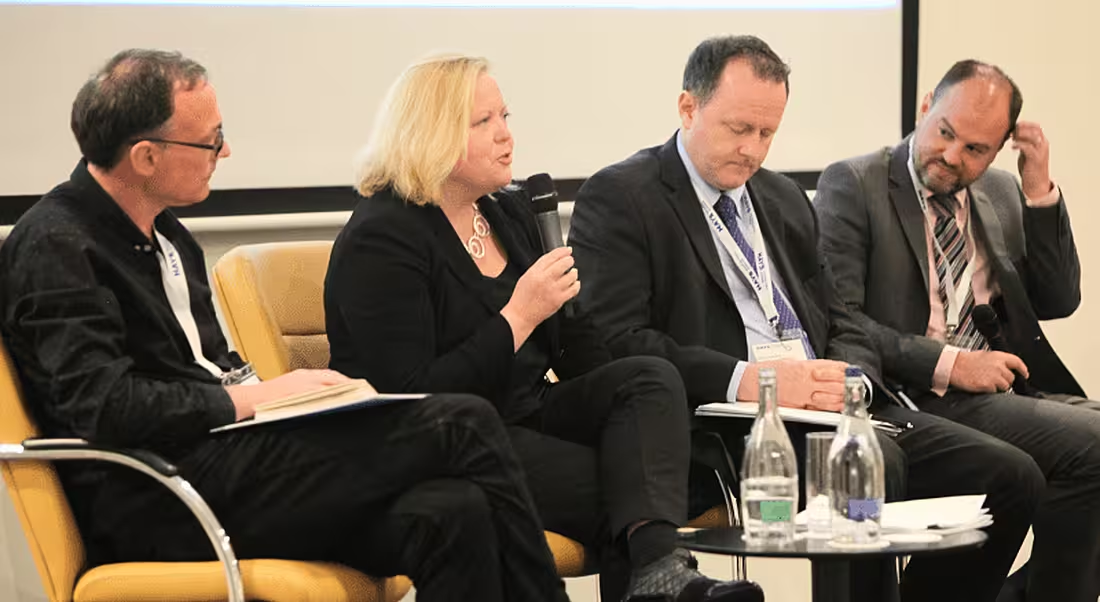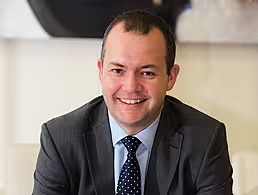In discussing the outcomes of Hays’ recently published report on the state of resourcing in Ireland, the conversation kept turning to the importance of employer branding.
“Most CEOs, if you ask them what is the key concern that they have, they’re automatically going to say it’s about talent acquisition and retention. What we find really interesting is, if you then ask the same CEOs, ‘Okay, so what’s your brand strategy?’ there’s kind of a gap,” said Silicon Republic publisher Darren McAuliffe, who was invited to join the Hays panel discussion along with Miriam O’Keeffe, programmes director at the American Chamber of Commerce Ireland; James Milligan, senior IT business director at Hays, and John Kennedy, infrastructure HR manager at Iarnród Éireann (Irish Rail).
Moderating the discussion was Arthur Beesley, economics editor with The Irish Times, who probed the panel on the seven key factors identified in the Hays report, which had previously been outlined by Hays Ireland MD Richard Eardley.
Both the report and the discussion that followed provided food for thought for the HR professionals attending the breakfast seminar in the Marker Hotel, Dublin.
New challenges from a candidate-led market
“The fact is that there are now 130,000 more people at work in the Irish economy than at the trough in the height of the crisis, and that, of course, presents, as we will discuss, a whole ream of challenges,” said Beesley, who started the discussion on the issue of employer reputation and branding in this competitive market.
“We’ll interview CEOs and they will talk about the team, the technologies they get to work on, the really cool stuff they’re doing, their diversity policy, as much as they actually talk about their customer value proposition,” noted McAuliffe.
“They’re the really clever companies that are actually going to win when candidates have so much choice.”
The issue of employer branding has become particularly important due to the changing nature of recruitment in a candidate-led market. In this environment, professionals can afford to be choosy about who to interview and work for.
“I think there are exemplary companies who are doing this absolutely brilliantly and it’s quite clear, but I think that other companies who are competing with them need to realise that, in a candidate-led market, the candidates are very put off by certain things and very turned on by certain things,” said O’Keeffe.
“If you’re looking for a technologist, how your website looks is going to be reputational because, when they engage with it, they’re going to say, ‘Well this is cool.’ Even if you’re not looking for a technologist, cool is good.”
Embracing social media
As more and more industries become digitised and adaptive to new technology, the tech sector itself faces new challenges in recruitment. Roles such as software engineer, data scientist and app developer are as likely to be on offer at financial institutions and consultancy firms as they are with born-on-the-internet companies.
Additionally, in this increasingly competitive environment, employers are also faced with having less control over their brand message, particular with the growing use of social media and even company ratings platforms such as Glassdoor.
“The same would apply to how your profiles on LinkedIn look like for your existing staff, what are they doing within LinkedIn or other social media. All of those things have really big reputation impact,” continued O’Keeffe.
For those companies fearful of social media, McAuliffe advised, “You have to get to a point where you don’t try and curate the message, you don’t try and control it; what you try and do is participate in it.”
Diversity at recruitment level
Other topics discussed by the panel included the declining job-for-life mentality with each new generation – which was having a particular impact at Iarnród Éireann, according to Kennedy – and the challenge of achieving greater diversity in the workforce.
Hays director Milligan had some particularly pertinent points to make on this, warning that working diversity policies require more than just a box-ticking exercise and that there’s more than just a gender gap to overcome.
Building on this, O’Keeffe said that recruiters often suffer from “snobbery” for third-level qualifications, which aren’t always necessary.
“When I think about diversity, I think we have to think of diversity in its complete form. So it is about women’s engagement in the workforce, but it’s also about looking for candidates and going down non-traditional routes,” she said.
“Have we really thought, is an open mind, an ability to learn or a curiosity about finding information actually more important for the role than the fact that they’ve spent three years or four years in a third-level institution.”
Overall, O’Keeffe believes the recruitment challenges put in the spotlight through the Hays report aren’t to be solved by HR departments working alone, but by sectors working together to improve the overall situation.
“I think that, actually, we need to keep very solid-headed as we develop and not – as much as possible – get in to talent wars between ourselves. I think that’s actually going to work to our massive disadvantage,” she said, as she concluded the morning’s discussion.
Looking for tech jobs in Ireland? Check out our Featured Employers section for information on companies hiring right now.




